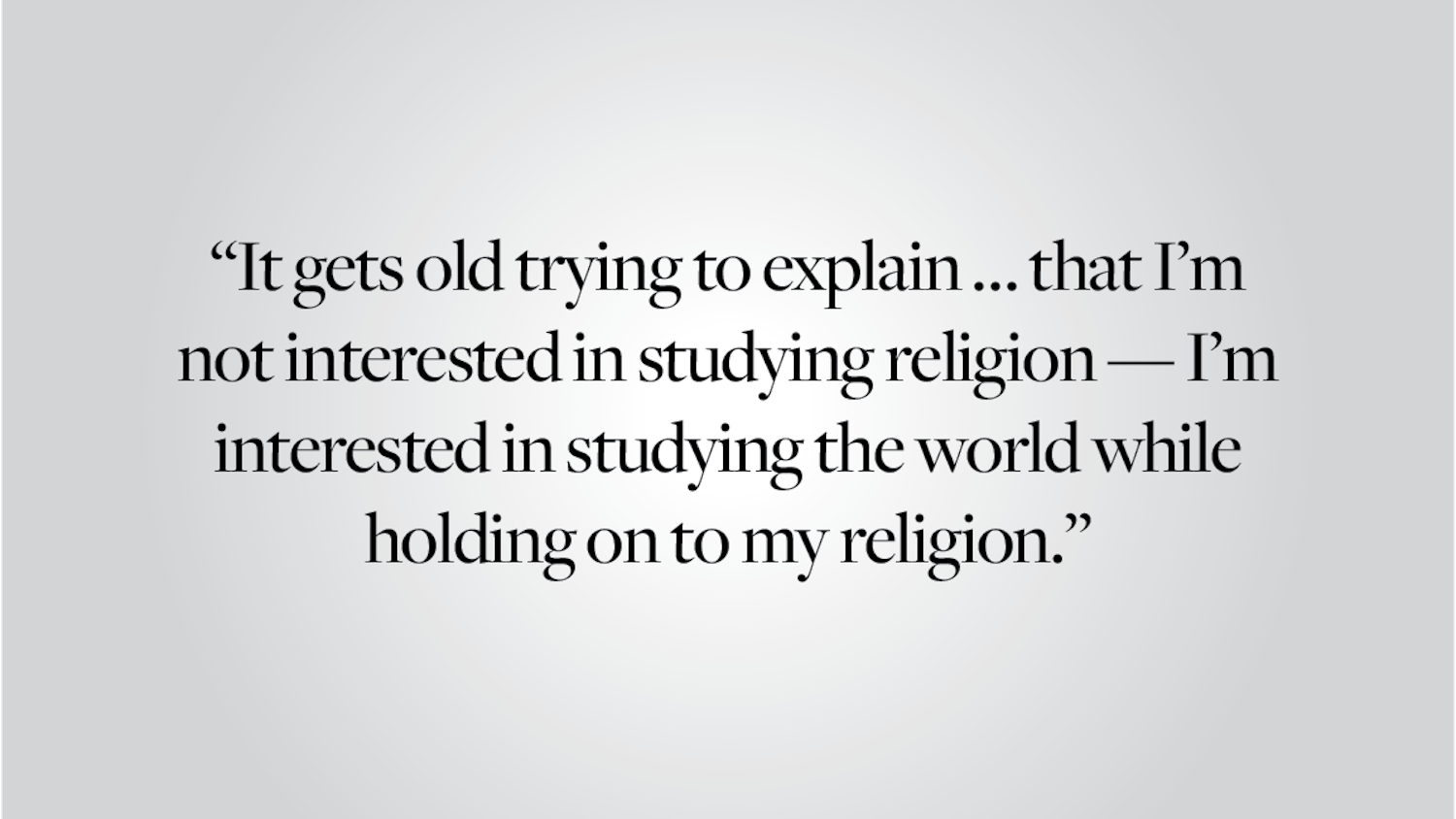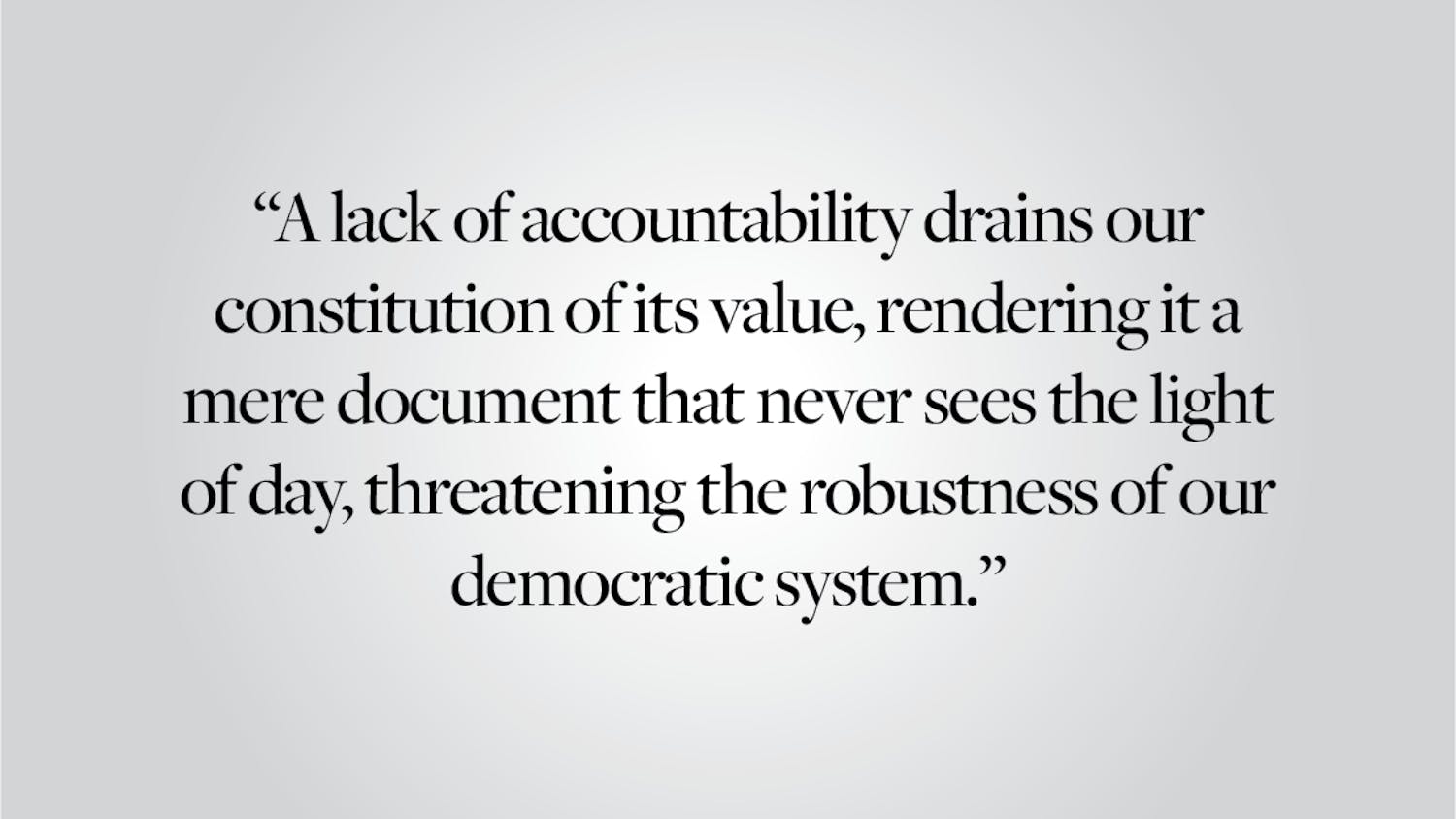It’s 8 a.m. on a cold Monday morning. My roommates and I fight the urge to stay under our warm covers and force ourselves out of bed for another long day of classes. We make it to Barus and Holley, open our notebooks, power through a 50-minute lecture and then get on with the rest of our day — more classes, an hour at the gym, homework, teaching assistant hours, labs and maybe a few short breaks to get food with friends or play Rocket League. After that, rinse and repeat until the weekend. While I don’t think that kind of lifestyle is unique to an engineer, it summed up a lot of my daily life as an engineering student.
When I first wanted to be an engineer, I thought of all of the great things that engineering could offer: challenging problems, the ability to create new things, a community of smart and technical people and the satisfaction of solving relevant issues. I don’t think Brown engineering does a bad job of stimulating these things, but it doesn’t do a particularly great job either. Most engineering classes are based around interesting problem sets, but eventually the gratification of turning in another piece of paper riddled with scribbles starts to dim — after all, we all did that for four years in high school.
The quality of lectures obviously varies by professor, but there are many introductory sequence courses that follow the same format: “Let me derive this equation for you and then show you how it can be applied to the real world.” This can make the lectures monotonous and repetitive. I’ll also never understand why we need to write so many lab reports. I want to build and design things, not write the same old lab report that no one will read.
I don’t want to make it sound like the Brown engineering department is terrible and antiquated — it’s not. There are some amazing classes such as ENGN 0040: “Dynamics and Vibrations,” which includes interactive projects, engaging lectures (with fun in-class demos and electronic notes that save to Canvas) and problem sets to reinforce the material. Sometimes small things make a huge difference in an otherwise average class — like throwing an egg into the audience, taking a shot of whiskey at 9 a.m., flying a drone above the class to explain an equation or just using a tablet instead of chalk for notes. Classes like this made me want to be an engineer.
But then I had my first encounter with computer science in CSCI 0150: “Introduction to Object-Oriented Programming and Computer Science.” Before CS15, I had never thought of myself as a CS kid. I liked to get up early, collaborate with others and work with physical, concrete things — all things that I didn’t think represented computer science. But CS15 changed that perspective completely and quickly became the best class I’ve taken at Brown. The projects were rewarding and fascinating, the lecture slides were organized and easy to follow, the labs supplemented the material and the army of teaching assistants provided a great support system for students. I got addicted to the coding projects and was excited to spend more time perfecting my assignments and working on extra credit. Now, I’m a CS kid. After just one class, I decided to switch my main concentration to computer science.
This is one of the biggest problems with the engineering courses here. The actual material covered in these courses is just as awesome as the content in computer science. There’s no reason why coding should be more interesting than engineering. Not every class needs to be as involved as CS15, but engineering courses could learn some lessons from the computer science department.
First, the army of undergraduate TAs was instrumental to my experience. Undergraduate TAs relate to students better than most professors, give instant support via Piazza or office hours and provide a sense of community. Realistically, some professors just won’t be engaging speakers, but undergraduate TAs can make up the difference in a number of ways. They can reinforce the material in a more accessible way after class or just do something ridiculous like performing skits to give students a break (like in CS15).
There’s also a benefit to having professors own a course. Professor of Technology and Education and of Computer Science Andy van Dam has taught CS15 for such a long time that it’s a part of him. He wants to keep improving the course year after year and see it return better results each time. Many of the lower level engineering courses don’t have that same feel. Some courses have professors rotate teaching shifts, so nobody is responsible long enough to make improvements and see progress. There are plenty of exceptions, and courses with long-term professors are often much better, such as ENGN40. But there’s still a difference between teaching a course for a long time and owning a course. Owning a course means constantly trying to improve out of a passion for the subject and pride in the course itself. Many engineering courses feel old and stagnant because they lack this energy.
Brown engineering is definitely improving. The department is set to receive a brand-new building and is revamping many classes, but there is still a long way to go. Lecture classes need to be updated, and all professors need to use newer technologies to share notes and present to students. We need more undergraduate TAs who have taken the same classes and care about the future of the program. Courses need ownership, and professors should be willing to stick with a course long enough to see it improve and change. Projects and labs also need to give more room for creativity and fun.
If I graduate with a Brown engineering degree, I should be able to take an idea and make it a reality. But right now, I feel like most engineering courses only prepare us for completing cookie-cutter labs and building projects that look the same as everyone else’s. So wake up, Brown engineering! It’s time to catch up, get out of your comfort zone and show the Brown community what you’re made of.
Todd Ashley ’18 is a computer science and engineering concentrator and can be reached at todd_ashley@brown.edu. Please send responses to this opinion to letters@browndailyherald.com and other op-eds to opinions@browndailyherald.com.




